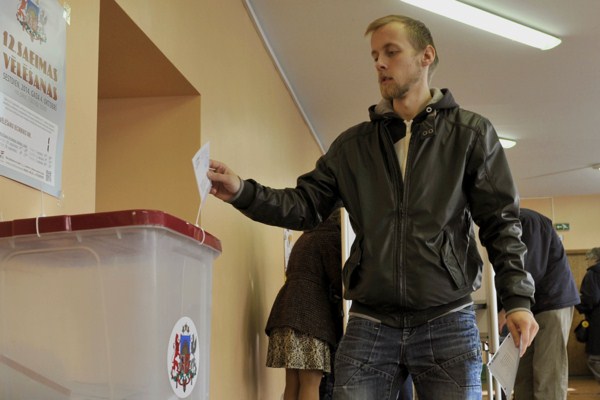Last weekend, Latvia’s ruling coalition maintained its majority in parliamentary elections that were held against the backdrop of continued harassment from Russia. Latvia and its two Baltic neighbors, Estonia and Lithuania—all former Soviet republics and current members of NATO and the European Union—have watched Russia’s intervention in Ukraine with escalating concern.
While NATO’s Article 5 obligates the entire alliance to come to the defense of the Baltics in the event of a Russian attack, Russian President Vladimir Putin has been testing the limits of that commitment. In recent months, Russia has captured an Estonian intelligence officer in a cross-border raid, seized a Lithuanian fishing boat, staged large military exercises in the Baltic and allegedly threatened to invade all three countries. NATO, in turn, has deployed military forces to the region and held war games today in Latvia as a signal of commitment. In a speech in Estonia last month, U.S. President Barack Obama pledged: “As NATO Allies, we will meet our solemn duty, our Article 5 obligation to our collective defense. And today I want every Estonian and Latvian and Lithuanian to know that you will never stand alone.”
The Baltics are especially vulnerable given that Putin has justified his actions in Ukraine as defending the rights of that country’s large Russian-speaking population. The Russian-speaking population of the Baltics stands at about 29 percent in Estonia, 33 percent in Latvia and 8 percent in Lithuania. The legal status of Russian-speakers—a category significantly overlapping, but not synonymous, with ethnic Russians—varies between the three countries, but has been a source of frequent criticism from the Kremlin since the Baltics achieved independence in 1991. In Latvia, out of a population of about 2 million, roughly 300,000 Russian-speakers are “non-citizens” who cannot vote or hold office unless they pass Latvian language and history tests.

